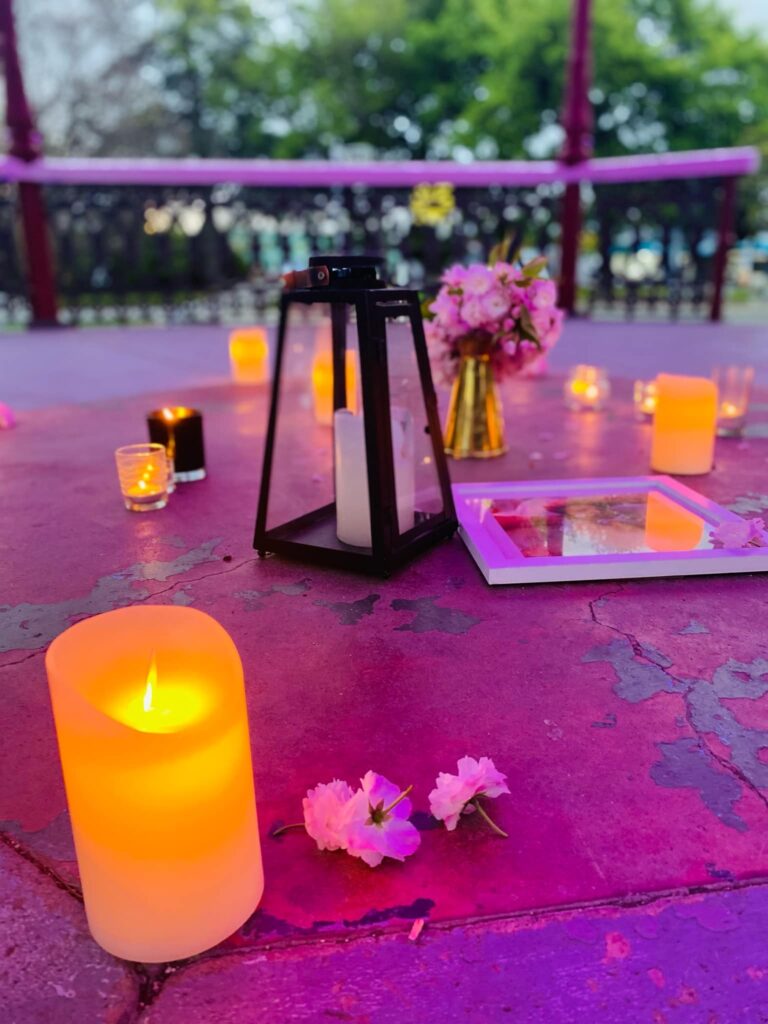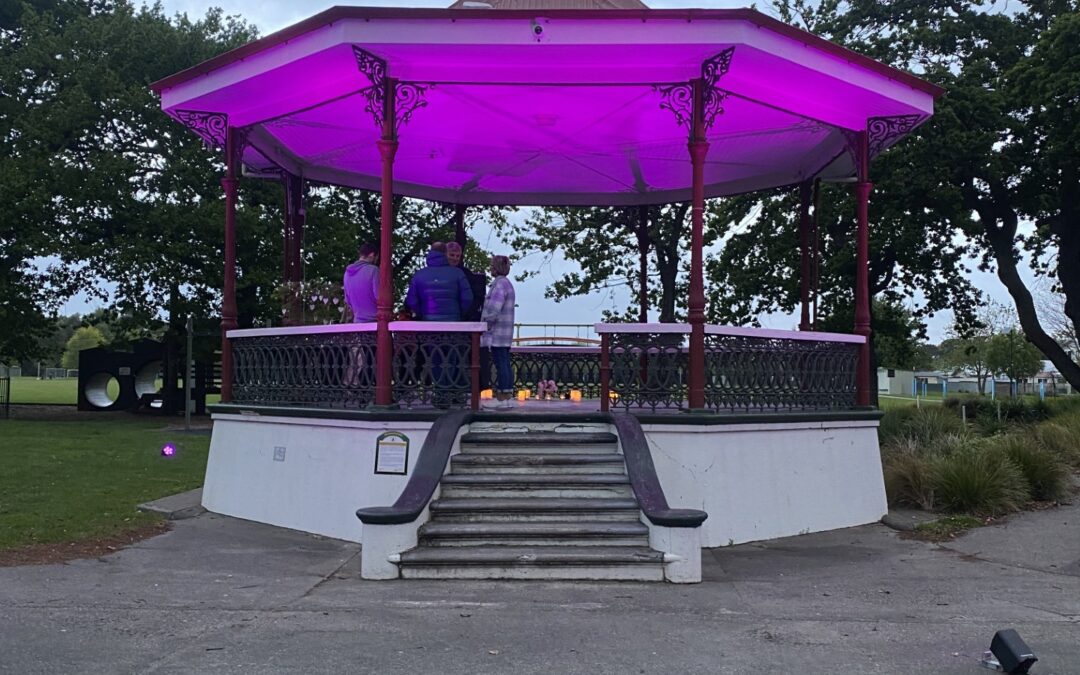This article was written by Erin Kavanagh-Hall and appeared in the Wairarapa Midweek, October 8 2024.
Wairarapa whānau will gather in Carterton next week to remember the children who lit up their lives, if only for a short time.
On Tuesday, Hōkai Tahi will host a Wave of Light evening memorial service at Carrington Park, where bereaved parents and their loved ones are invited to light a candle in honour of the babies who “left too soon”.
The event is part of Baby Loss Awareness Week, which runs from October 9 to 15 and is held annually around the world to increase awareness of pregnancy and infant loss – an issue that often encompasses miscarriage, ectopic pregnancy, stillbirth, neonatal death, and death in infancy.
On October 15, at 7pm local time, in any location, people can light candles in memory of their babies – and “be part of a wave of love and light that begins here in Aotearoa and wraps around the globe”, Hōkai Tahi service manager Rebecca Vergunst said.
As well the candle lighting ceremony, the Carterton event will include a “memory tree”, where whānau can display photos of their babies, plus readings, music, and tea and coffee.
Hōkai Tahi, a Wairarapa charity providing pregnancy and baby loss support, organised the event in partnership with Carterton mum Sarah Macdonald, whose baby son, Jay, died in 2021.
Vergunst said this would be the first Wave of Light service held in Wairarapa, and Hōkai Tahi hoped to make it an annual event.
“Throughout that day, there will constantly be candles burning around the world in memory of our babies. To be part of this worldwide memorial and celebration of their life in Wairarapa feels really special,” she said.
“We hope it will be comforting and uplifting for our whānau. It’s important that parents can feel heard and seen – and that we can acknowledge that their babies were here, if only for a short while, and that they mattered.
“For bereaved parents, their babies now only exist in their memories. An event like Wave of Light helps create a physical space where they can do something [tangible] to honour their lives and share their story.”
Though baby loss is less frequent now in Aotearoa than it was for previous generations, it is still “more common than people realise”, Vergunst said.
For example, it is estimated at least one in four pregnancies will end in an early miscarriage (before 12 weeks).
The latest report of the Perinatal and Maternal Mortality Review Committee found that in 2021, of the 60,000 births in New Zealand, 311 ended with a stillbirth (a foetal death at or beyond 20 weeks’ gestation) and 191 were neonatal deaths (where the baby dies within 28 days of birth).
Vergunst’s own son, Asher, was stillborn at 21 weeks.
“In my role, I’ve had a lot of conversations about baby loss – and people really are quite shocked at how prevalent it is,” she said.
“And when you look at the statistics over the last few years, it’s not really trending downwards. So, there’s a high chance people in this community will know someone who has lost a baby.”
While baby loss was a difficult topic for many people to consider, campaigns such as Baby Loss Awareness Week could create open conversations, normalising parents’ grief and helping them feel less isolated, she said.

Creating awareness also helped loved ones to feel more equipped to support whānau through their loss.
“I think, in Wairarapa, awareness has improved. But it’s definitely something that people would rather avoid than confront,” Vergunst said.
“We’ve supported parents who have had people cross the street when they see them, or avoid talking to them in the supermarket. Often, people just don’t know how to respond.
“We tend to want to try and fix it – but you can’t fix the unfixable. It can be the little things that matter most, like keeping in touch regularly just to check in or being willing to talk about your child and share their memories.”
In Wairarapa, Hōkai Tahi offers a range of services for grieving parents, including counselling, support groups, practical support, and care packages made possible with community donations.
The service recently expanded into South Wairarapa, opening a clinic at Featherston’s Hato Hone St John premises that is open every Wednesday.
Vergunst said the service supports parents shouldering many different losses: processing emotions after a termination, anxiously waiting to bring children home from a neonatal intensive care unit (NICU), recovering from a traumatic birth, or grieving a loss in a twin pregnancy.
“That’s another thing that can be more common than people think – a situation where one twin has passed and the other has survived. So parents are experiencing joy and grief both together,” she said.
“I think people are realising how common it is for babies to spend time in NICU – and how hard it is for parents to be away from them.”
Carterton local Sarah Macdonald, one of the organisers of the Wave of Light event, spent six weeks in the NICU at Wellington Hospital with her eldest child, Jay, who was diagnosed with a rare genetic condition, before he died.
“It means a lot to do something special to acknowledge Jay here in Wairarapa,” she said.
“It will also be special to connect with other loss parents and know we’re not alone.”

